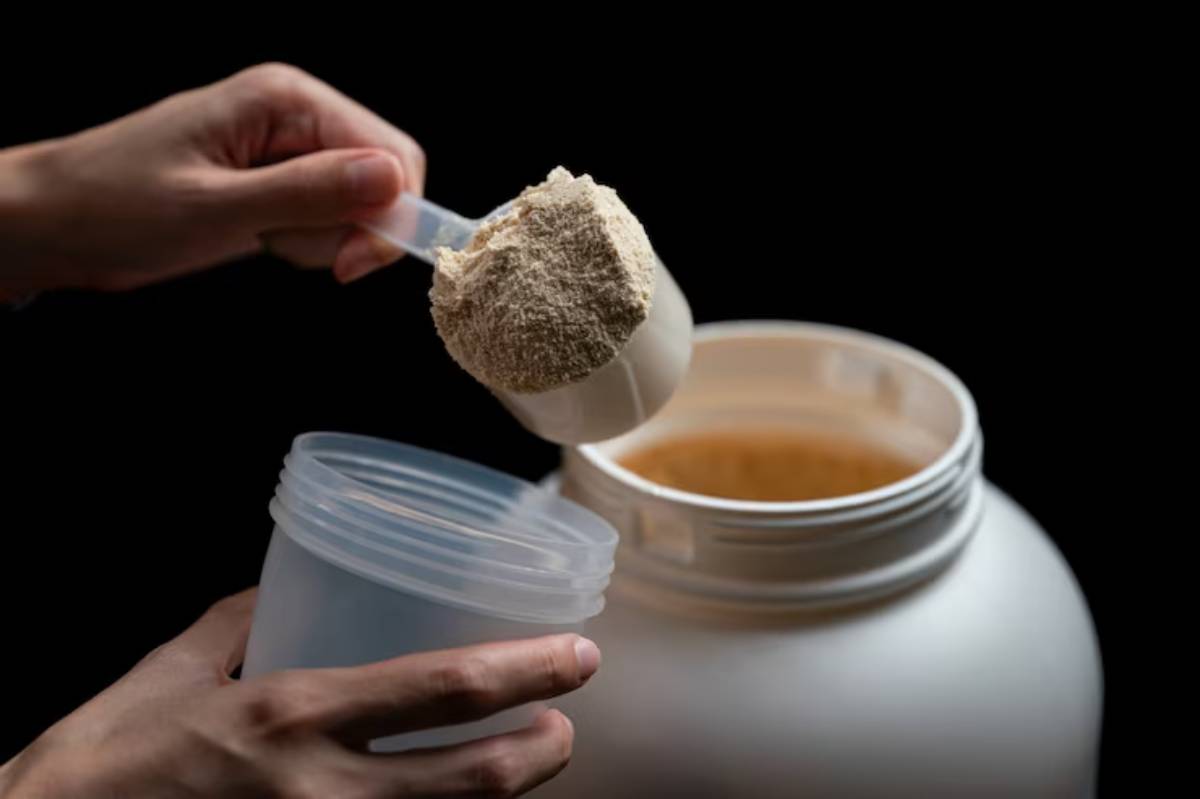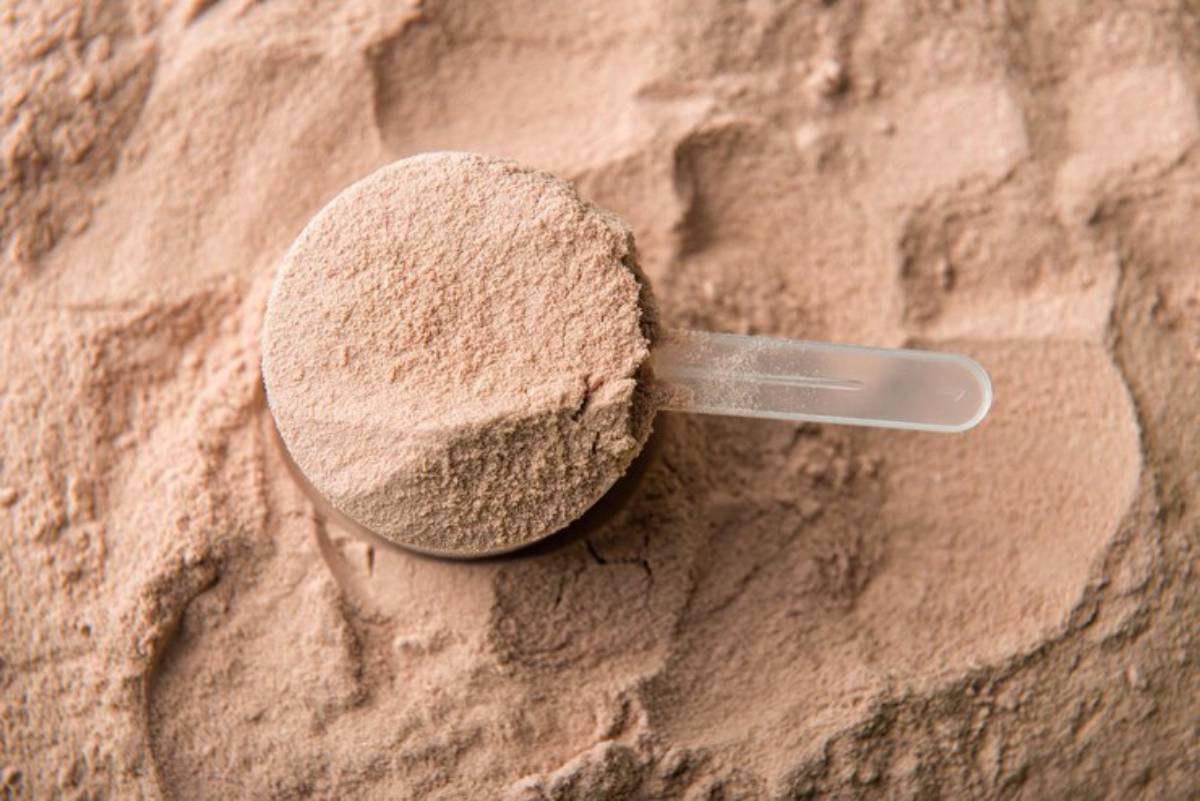
Night Time Protein: Casein and Slow Digesting Options
You’ve hit the gym hard, fueled your body post-workout, and tucked yourself into bed thinking you’ve done everything right for muscle recovery. But here’s a question What are you feeding your muscles while you sleep?
When it comes to building muscle, recovery is just as crucial as training, and sleep is where much of the repair magic happens. However, without a sustained protein source, your body might slip into a catabolic state overnight — breaking down muscle tissue for energy.
Enter nighttime protein, particularly casein supplements and other slow-digesting proteins. These help maintain a steady supply of amino acids throughout the night, supporting muscle repair and growth while you rest.
In this article, you’ll learn:
- Why casein is ideal for nighttime use
- Other slow-digesting protein options
- When and how to use them effectively
- How it compares to whey and plant proteins
Why You Need Protein While Sleeping
Muscle Recovery Happens at Night
During deep sleep, your body releases growth hormone, kicks off tissue repair, and consolidates energy storage. This process demands amino acids, the building blocks of muscle.
If there’s no available protein in your system, your body may:
- Tap into muscle tissue for fuel (catabolism)
- Slow down recovery and adaptation
- Increase soreness and reduce next-day performance
Why Slow Digestion Matters
Most proteins, like whey, are absorbed quickly, within 2–3 hours. But sleep typically lasts 7–9 hours. You need a protein source that provides a slow, sustained release of amino acids throughout the night.
This is where casein shines.
Casein Protein: The King of Nighttime Supplements
What Is Casein?
Casein is the primary protein found in milk, accounting for about 80% of its protein content. Unlike whey, casein clots in the stomach, releasing amino acids slowly over 6–8 hours.
Benefits of Casein for Nighttime Use:
- Prolonged amino acid release while you sleep
- Supports overnight muscle repair
- Reduces muscle breakdown
- Enhances morning muscle protein synthesis
Clinical Backing
A 2012 study published in Medicine & Science in Sports & Exercise showed that consuming 40g of casein 30 minutes before sleep increased overnight muscle protein synthesis and improved next-day recovery.
Types of Casein Supplements
1. Micellar Casein (Most Recommended)
- Least processed, maintains native protein structure
- Slowly digested
- Ideal for bedtime
2. Caseinate (Calcium or Sodium Caseinate)
- More soluble, faster absorption than micellar
- Often used in blends
3. Casein Blends
- Combine micellar casein, whey, and sometimes egg or soy
- May provide a fast-to-slow amino acid release profile
Dosage & Timing
30–40g of casein protein 30–60 minutes before bed
Mix with water or milk for added protein and creaminess
Alternatives to Casein for Slow Digestion
1. Greek Yoghurt or Cottage Cheese
- High in natural casein
- Add nuts or berries for healthy fats and antioxidants
2. Egg Protein
- Medium digestion speed
- Rich in essential amino acids
- Great in mixed protein powders
3. Plant-Based Options
- Pea protein and rice protein blends can slow absorption
- Add chia or flax seeds to slow digestion further
- Look for plant-based night recovery blends
Comparing Casein vs Whey: What’s Better Before Bed?
| Feature | Whey Protein | Casein Protein |
| Digestion Speed | Fast (2–3 hrs) | Slow (6–8 hrs) |
| Best For | Post-workout | Nighttime recovery |
| Satiety | Moderate | High |
| Muscle Protection | Short-term | Long-lasting |
Bottom Line: Use whey post-workout and casein at night to maximise both ends of the recovery spectrum.
How to Optimise Nighttime Protein Intake
1. Pair With Healthy Fats
Fats slow digestion even further, enhancing casein’s effects. Try:
- A spoonful of nut butter
- Chia pudding made with casein
2. Add Micronutrients
- Magnesium and zinc improve sleep and recovery
- Try ZMA (zinc, magnesium aspartate, and B6)
3. Make It a Ritual
Turn your casein shake into a pre-bed routine that signals sleep to your body:

- Dim the lights
- Mix your shake
- Journal or stretch
Nighttime Protein Recipes
Casein Chocolate Bedtime Shake
- 1 scoop micellar casein
- 1 cup almond milk
- 1 tbsp cocoa powder
- Ice + cinnamon
Greek Yoghurt Protein Bowl
- 1 cup Greek yoghurt
- 1 scoop casein (vanilla)
- Chia seeds + berries
Vegan Night Recovery Smoothie

- 1/2 frozen banana + oat milk
- 1 scoop plant protein blend
- 1 tbsp almond butter
- 1 tbsp ground flaxseed
Real-World Results
Liam (27, Strength Athlete)
“I used to wake up feeling sore and flat. Since adding casein before bed, I’ve noticed less soreness and better sleep.”
Priya (34, Fat Loss Phase)
“Night cravings used to ruin my diet. A chocolate casein shake satisfies the sweet tooth and keeps me full.”
Marcus (45, Late-Night Lifter)
“I train at 9pm and go to bed by 11. Casein protein has helped smooth that recovery window perfectly.”
Common Mistakes to Avoid
- Using whey at night instead of casein
- Overeating before bed thinking more food = more gains
- Forgetting to include healthy fats or micronutrients
- Not staying consistent with nightly intake
Read: Adaptogens to Reduce Cortisol & Support Gains.
Conclusion: Feed Your Muscles While You Sleep
Muscle building doesn’t stop when you fall asleep — in fact, that’s when much of the repair and growth happens. Without a sustained source of protein like casein, your body may tap into precious muscle for fuel.
Incorporating slow-digesting nighttime proteins ensures that your hard training efforts translate into real gains. Whether you go for a micellar casein shake, cottage cheese, or a high-quality plant-based blend, the key is consistency and quality.
Try adding 30–40g of casein to your evening routine this week. Track your soreness, sleep quality, and morning energy.
And for a full-body recovery plan, don’t forget to explore our companion article: The Role of Protein Timing in Muscle Growth.


